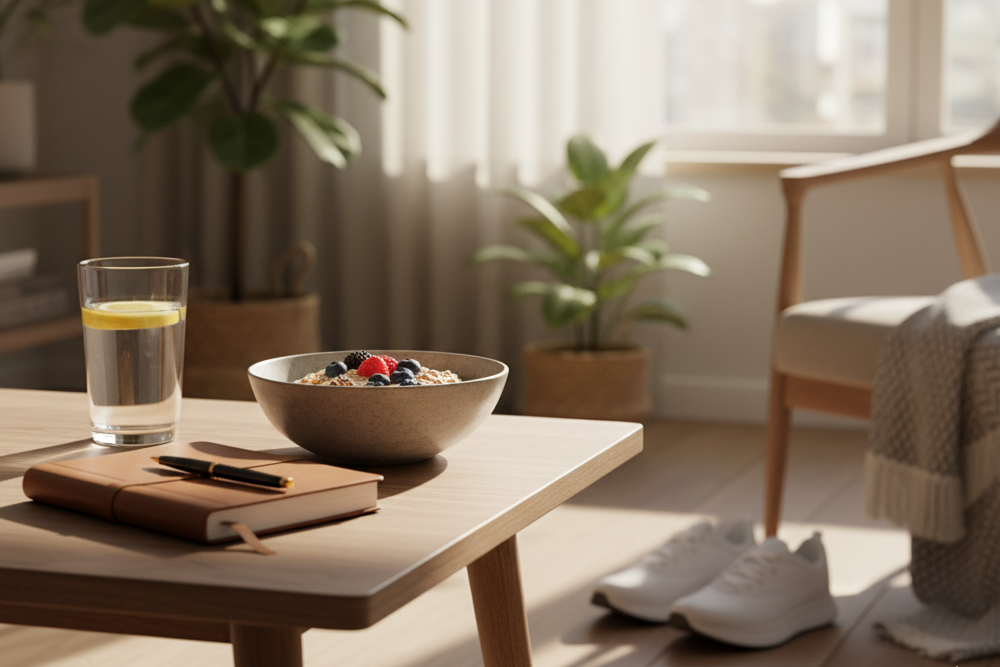How to Prioritize Self-Care in 2026 Without Feeling Guilty
Ava Welles
2025-10-19
6 min read

In a world that celebrates constant productivity and perpetual availability, taking time for yourself can feel like an act of rebellion. As we navigate 2026, the pressure to optimize every moment has only intensified, leaving many people feeling guilty about basic self-care activities like taking a lunch break or going to bed early. This guilt-ridden relationship with self-care isn't just counterproductive—it's actively harmful to our mental and physical well-being. The time has come to reframe how we think about self-care, moving beyond the notion that it's selfish or indulgent. Instead, we need to recognize it as an essential component of a healthy, sustainable life that actually makes us more effective in all our roles and relationships.
Understanding the Guilt Behind Self-Care
The guilt surrounding self-care often stems from deeply ingrained cultural messages about productivity and worth. Many of us were raised with the belief that our value comes from what we accomplish, not who we are. This mindset creates a perpetual cycle where rest feels unearned and personal needs seem less important than external demands. Social media has amplified these feelings by creating an environment where everyone appears to be constantly achieving, creating, or contributing. The carefully curated highlight reels we see online make ordinary self-care activities like reading a book or taking a bath seem lazy in comparison to someone else's seemingly endless accomplishments. Research in psychology shows that people who regularly engage in self-care actually perform better in their professional and personal lives. Studies published in occupational health journals demonstrate that employees who prioritize their well-being show increased creativity, better decision-making abilities, and higher job satisfaction. This evidence suggests that self-care isn't just beneficial—it's strategically smart.
Redefining Self-Care for Modern Life
Self-care in 2026 looks different from the stereotype of expensive spa days and luxury retreats. True self-care is about creating sustainable practices that nourish your physical, mental, and emotional well-being within the context of your actual life. This might mean setting boundaries with technology, prioritizing sleep, or simply giving yourself permission to say no to commitments that drain your energy. The most effective self-care practices are often simple and accessible. Taking a ten-minute walk during lunch, practicing deep breathing exercises between meetings, or maintaining a consistent bedtime routine can have profound effects on your overall well-being. These activities don't require significant time or financial investment, but they do require a shift in mindset that values your well-being as a priority rather than an afterthought. Consider self-care as maintenance rather than indulgence. Just as you wouldn't feel guilty about putting gas in your car or charging your phone, taking care of your basic human needs should be viewed as necessary upkeep. Your body and mind require regular attention to function optimally, and neglecting these needs ultimately makes you less capable of meeting your responsibilities and supporting others.

Practical Strategies for Guilt-Free Self-Care
Start by identifying the specific sources of your self-care guilt. Are you worried about being perceived as lazy? Do you feel like you're taking time away from family or work obligations? Understanding the root of these feelings helps you address them more effectively. Often, the guilt is based on assumptions about what others think or expect, rather than actual conflicts or consequences. Integration is key to sustainable self-care. Instead of viewing self-care as separate activities that compete with your other priorities, look for ways to weave wellness practices into your existing routine. This might mean listening to calming music while commuting, practicing mindfulness during daily activities like washing dishes, or turning your evening skincare routine into a moment of mindful self-attention. Communication plays a crucial role in reducing self-care guilt. When you're transparent with family members, colleagues, or friends about your need for certain boundaries or practices, you often discover they're more supportive than you expected. Many people struggle with similar feelings and appreciate when someone models healthy self-care behaviors.
Building a Support System
Surrounding yourself with people who value and model healthy self-care makes it easier to prioritize your own well-being without guilt. Seek out friends, colleagues, or online communities that normalize taking breaks, setting boundaries, and prioritizing mental health. When self-care becomes part of your social environment rather than something you do in isolation, it feels more natural and less selfish. Consider the concept of collective care, where supporting your own well-being is viewed as contributing to the health of your community. When you take care of yourself, you show up more fully for others. You have more patience with your children, more energy for your relationships, and more creativity for your work. This perspective transforms self-care from a solitary act into a way of serving the people and causes you care about.
Overcoming Perfectionism in Self-Care
Many people abandon self-care practices because they can't maintain them perfectly. This all-or-nothing thinking creates unnecessary guilt and prevents you from benefiting from imperfect but consistent efforts. A five-minute meditation is better than no meditation. A quick walk around the block is more beneficial than skipping movement entirely because you don't have time for a full workout. Flexibility is essential for sustainable self-care. Your needs will change based on life circumstances, seasons, stress levels, and health factors. What works during a calm period might not be realistic during a crisis, and that's perfectly normal. Adapting your self-care practices to fit your current reality rather than forcing yourself to maintain rigid routines reduces guilt and increases the likelihood that you'll continue prioritizing your well-being.
Making Self-Care Non-Negotiable
The most effective approach to guilt-free self-care involves treating certain practices as non-negotiable aspects of your life, similar to how you view work meetings or family obligations. This might mean scheduling self-care activities in your calendar, setting reminders on your phone, or establishing routines that happen automatically without daily decision-making. Start small and build gradually. Choose one self-care practice that feels manageable and commit to it for a specific period, such as two weeks. This might be drinking a full glass of water first thing in the morning, taking three deep breaths before checking your phone, or spending five minutes outside each day. Once this practice feels natural, you can add another element. Remember that prioritizing self-care in 2026 isn't about perfection or achieving some idealized version of wellness. It's about recognizing that your well-being matters and taking practical steps to support it within the reality of your life.


